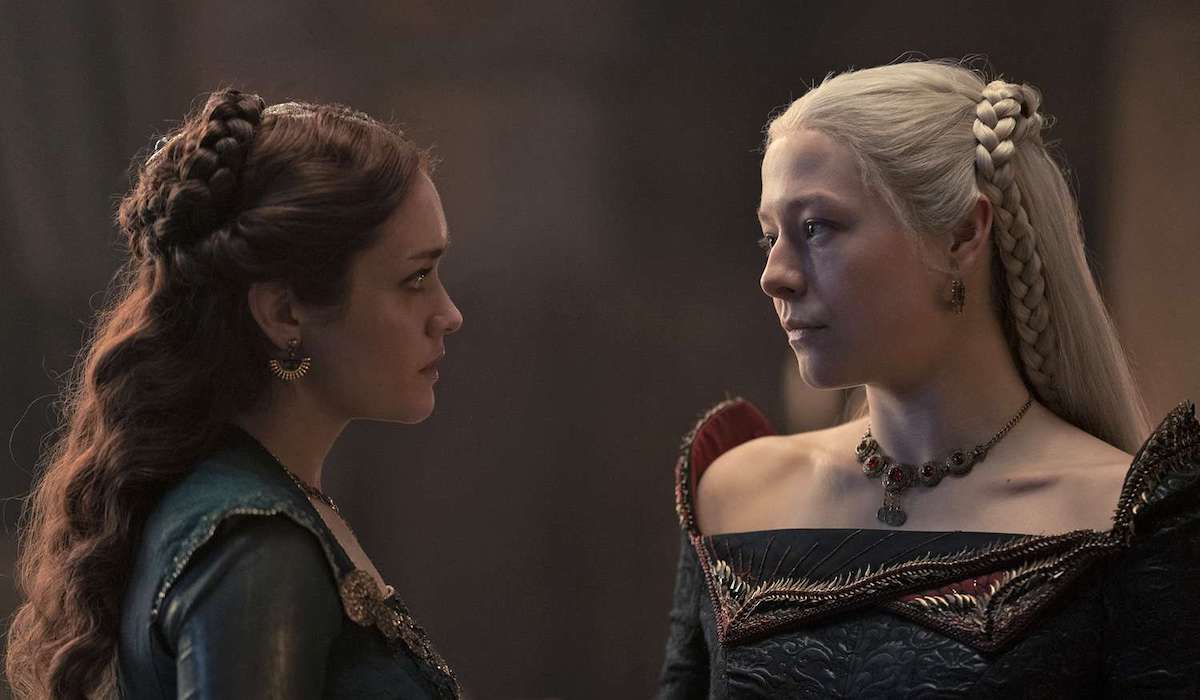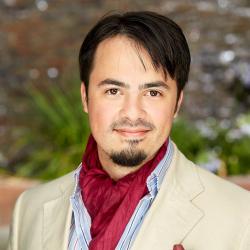I recently wrote about what has come of Disney, whose new Pinocchio seems to be all about getting rid of morality as we have understood it. Instead of learning that actions have consequences and how to behave with a view to growing up, children are supposed to be flattered until they get into trouble, and then further flattered by being told that the rest of the world is causing their problems.
Let’s move on from children to teenagers or young adults, from Disney to HBO, and take a look at the visions of human action that educate the moral imagination of America. There’s a new Game of Thrones series, created by novelist George R. R. Martin himself, called House of the Dragon, set a few centuries before the previous one and continuing its interest in decadence. Since the first season is over, it’s easy to pick out the major features of the stories and their tendency, and since this is a big success with at least another season to come, it will have an influence worth deploring intelligently.
I have three thoughts to share. The first, though obvious, is the most important. People have been watching Game of Thrones all over again, reaffirming, so to speak, that it’s the only really popular thing on TV. Tens of millions of fans by now have gotten used to a series that started more than a decade back, in 2011. The finale was a silly disappointment, all told, but people don’t care anymore. Nothing better has come along and people are going back for a refresher course, if you will. The viewers, of course, are following after tens of millions of readers around the world who have been devouring Game of Thrones novels, stories, encyclopedias, and graphic novels since the series started in 1996. HBO claims that, within a week, the first episode of House of the Dragon was viewed by 25 million people.
This is a very unfortunate thing, but we must face facts: HBO has succeeded in identifying popularity and prestige with immorality. Things that could not have been shown in prime time 20 years back are now the only prime time fare there is. The question left to ask is: How will this new habit be passed on to a younger generation? To that end, House of the Dragon continues the attempt of Game of Thrones to make incest a popular spectacle. I fear that decent people are afraid of even noticing it, and I have seen people try to explain it away; worse still, most are afraid of speaking up. I suggest, instead, you join me in condemning this madness. Hopefully, it is possible to stop it.
The way to understand the thinking behind such stories is the following: For certain visionaries of Progress, only that which is transgressive, which breaks with the past, can be authentically human; only law breaking can be just. Authentic individuality, the quest for which makes audiences care about the protagonists, might come through love, but only forbidden love. At the same time, the family, the oldest institution that stands in the way of Progress, can be destroyed through forbidden love. The result is that incest becomes mandatory for both personal and political reasons. Expect more of it in storytelling if we allow ideologically driven Progress to overcome civilization.
The second observation has to do with the habit of polishing pornography, long an HBO specialty, which has been toned down in House of the Dragon, since the new generation is not interested in sex in the way people were until recently. This is somehow to do with the all-around situation of the Millennials, the first American generation to be broadly and perhaps deeply unerotic; unmarried, too, it goes without saying. House of the Dragon is the kind of Game of Thrones series that would not repel them. The series overall is much more concerned with children, teenagers, young adults, and their rather dark and sentimental moods. Comparatively, Game of Thrones was almost entirely about middle-aged people, the young adults trying to compete with them. So there’s less pornography but more insistence that young people’s self-obsession is the proper replacement for morality.
House of the Dragon tells the story of a succession crisis: A weak king is father to one woman and husband to another, both of whom want to end up on the throne, or at least want the throne for their children. The story jumps from their youth to adulthood, and the two young women end up reluctant enemies, yet they are constantly portrayed as rather innocent, implausibly retaining the youth of the opening episodes. They are mothers, but of a modern kind—career women, really. Moreover, they are somehow excused for the horrors they are involved in, since they are women in a man’s world. This is the youthful self-obsession I have in mind, which somehow exonerates characters who advance their interests by atrocities. This is a vision of a post-moral society, or justification by barbarism.
The third observation will take us from incest and the family to pornography and the society of triumphant women to the political problem of decadence. If decent people live on the basis of identifying the lawful with the just, we may say that Game of Thrones is all about dissociating them to the point of identifying sophistication with decadence. Its infamous political realism for that reason is some mixture of resignation toward and enthusiasm for cruelty, murder, torture, etc.
Further, Game of Thrones is presented largely as the coming-of-age story of a few young women. It encourages in the young an easy familiarity with evil deeds that does nothing for encouraging public spiritedness or understanding politics. It just offers emotional debasement as protection against the claims justice might make on teenagers or young adults. One can say that the emotional plausibility of this Thrones/Dragon story of atrocity must come from moral failures in our society; there must be a connection between the pacified middle classes and the love of fictional violence, presumably at least a temptation to abandon concern for justice. But these spectacles must also give people ideas—above all, the idea that clever people (and cleverness is admired more than beauty in such stories) are practiced criminals.
We may say that House of the Dragon confronts people with two contradicting moral impulses. One is admiration of aristocracy, for its manners, confidence, and power over the lives of men, whatever the absence of the technological achievements that are distinctly our own. This may seem to be mere celebrity worship, or celebrity is an image of aristocracy. But aristocracy is all about family, and the show reveals the psychopathic consequences of making politics all about family—murders, intrigues, crimes of all kinds. This must somehow remind audiences of the collapse of the American family, since there is no faith or command to keep it together.
The other impulse is much more democratic—a desire to see horrors visited on all these people, out of envy. The success of this saga somehow reminds people that stories about ordinary or decent people are uninteresting. Only extraordinary people are interesting, because they are or want to be above the law (consider the success of and plaudits for Succession). Yet admiration for tyranny cannot yet be explicit. Perhaps that is next. This is what audiences are looking for in such stories, the political subtext of getting away with murder, incest, rape, and the rest.

